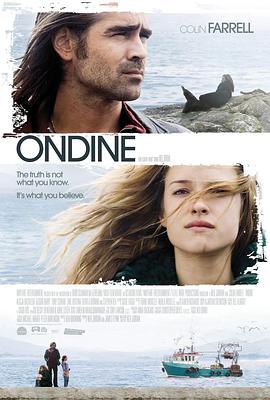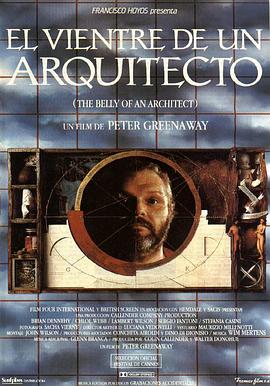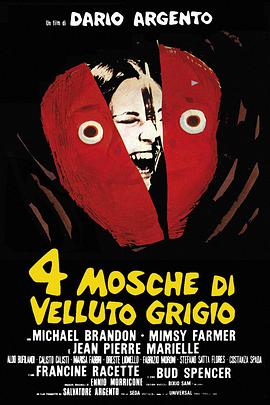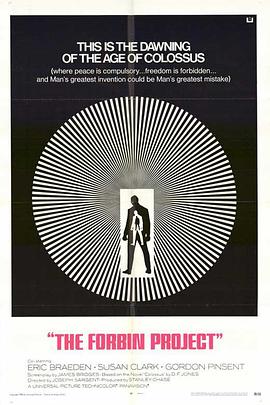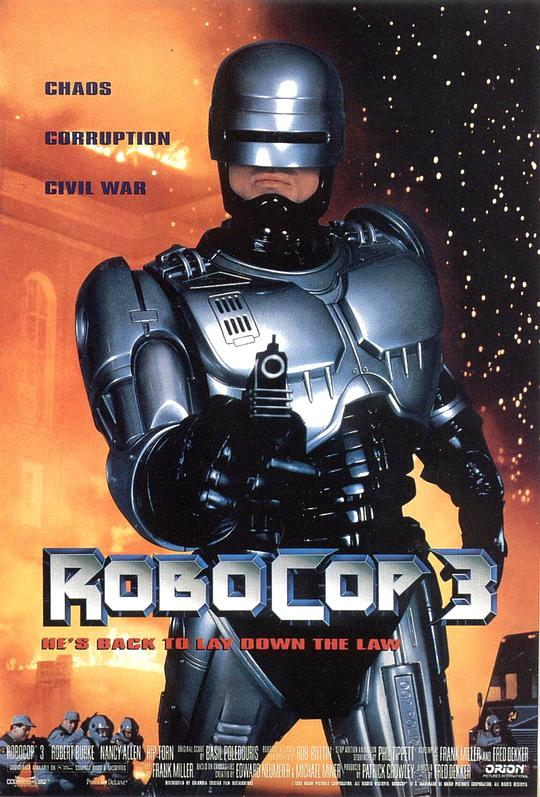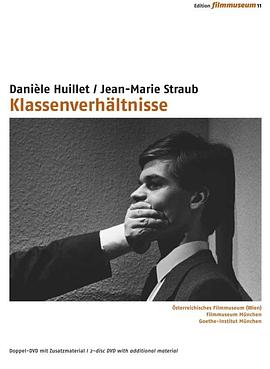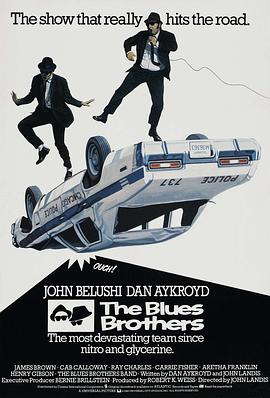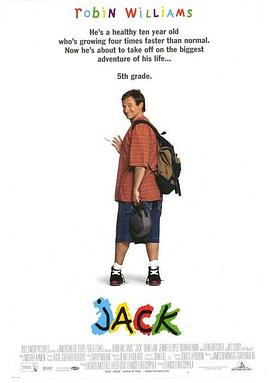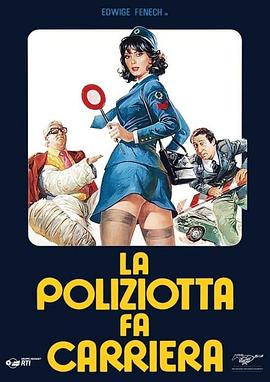-
备注:已完结
类型:爱情片
主演:科林·法瑞尔 艾丽卡·巴赫蕾达-库鲁斯 德乌拉·基尔万 艾莉森·巴瑞
导演:尼尔·乔丹
语言:英语
年代:未知
简介: 爱尔兰渔夫锡拉丘兹(科林·法瑞尔 Colin Farrell 饰)从海上捞起了一个神秘的美丽女子,名唤奥丁(艾丽卡·巴赫蕾达 Alicja Bachleda 饰)。锡拉丘兹将不愿见人的奥丁安置在自己母亲的海滨老屋中,意外发现奥丁竟给他的渔船带来了好运。锡拉丘兹的女儿安妮(艾莉森·巴瑞 Alison Barry 饰)患有肾脏衰竭,与酗酒的母亲莫拉(德乌拉·基尔万 Dervla Kirwan 饰)及其男友一起生活。安妮与奥丁结下了坚固的友谊,她相信奥丁是苏格兰神话中的海豹少女,上岸后埋下自己的海豹皮,便可在陆地生活七年,直到自己的海豹丈夫前来带她返回大海深处。锡拉丘兹果然与奥丁彼此相爱,但他对奥丁是真正身份一直半信半疑,直到某个黑发男子的神秘出现,要带走奥丁…… 本片被提名爱尔兰电影电视协会最佳服装设计、最佳导演、最佳影片及最佳电影剧本奖,并获最佳男主角(科林·法瑞尔)、最佳女配角(德乌拉·基尔万)、最佳布景及最佳声音奖。
-
备注:已完结
类型:剧情片
主演:布莱恩·丹内利 科洛·韦伯 朗贝尔·维尔森 赛尔乔·凡托尼 斯蒂芬妮娅
导演:彼得·格林纳威
语言:英语,意大利语
年代:未知
简介:彼得·格林纳威1987年作品,英国学院奖最佳编剧、最佳美术指导提名;戛纳参赛片。导演是画家出身,其作品的影像风格自然都是别具一格的色彩斑斓。 美国建筑师Stourley Kracklite和他已经怀孕的年轻妻子Louisa来到罗马组织一个纪念18世纪富于幻想力的法国建筑 师Etienne-Louis Boullée的展览。然而Kracklite却被腹疾所折磨,Louisa则与身为展览赞助者的潇洒的年轻建筑师Caspasian Speckler眉来眼去。电影有个特别的焦点,肚皮——建筑师生病的肚皮和妻子怀孕的肚皮,圆滚滚的形状直让人想起Boullée设计的那些圆顶建筑……
-
备注:已完结
类型:恐怖片
主演:迈克尔·布兰登 梅茜·珐玛 让-皮埃尔·马里埃尔 弗朗辛·拉塞特
导演:达里奥·阿基多
语言:其它
年代:未知
简介:Roberto, a drummer in a rock band, keeps receiving weird phone calls and being followed by a mysterious man. One night he manages to catch up with his persecutor and tries to get him to talk but in the ensuing struggle he accidentally stabs him. He runs away, but he understands his troubles have just begun when the following day he receives an envelope with photos of him killing the man. Someone is killing all his friends and trying to frame him for the murders...
-
备注:已完结
类型:战争片
主演:Andrzej Banaszewski Beata Barszczew
导演:斯坦尼斯拉夫·罗泽维格
语言:其它
年代:未知
简介: In 1961, Stanislaw Rozewicz created the novella film "Birth Certificate" in cooperation with his brother, Taduesz Rozewicz as screenwriter. Such brother tandems are rare in the history of film but aside from family ties, Stanislaw (born in 1924) and Taduesz (born in 1921) were mutually bound by their love for the cinema. They were born and grew up in Radomsk, a small town which had "its madmen and its saints" and most importanly, the "Kinema" cinema, as Stanislaw recalls: for him cinema is "heaven, the whole world, enchantment". Tadeusz says he considers cinema both a charming market stall and a mysterious temple. "All this savage land has always attracted and fascinated me," he says. "I am devoured by cinema and I devour cinema; I'm a cinema eater." But Taduesz Rozewicz, an eminent writer, admits this unique form of cooperation was a problem to him: "It is the presence of the other person not only in the process of writing, but at its very core, which is inserperable for me from absolute solitude." Some scenes the brothers wrote together; others were created by the writer himself, following discussions with the director. But from the perspective of time, it is "Birth Certificate", rather than "Echo" or "The Wicked Gate", that Taduesz describes as his most intimate film. This is understandable. The tradgey from September 1939 in Poland was for the Rozewicz brothers their personal "birth certificate". When working on the film, the director said "This time it is all about shaking off, getting rid of the psychological burden which the war was for all of us. ... Cooperation with my brother was in this case easier, as we share many war memories. We wanted to show to adult viewers a picture of war as seen by a child. ... In reality, it is the adults who created the real world of massacres. Children beheld the horrors coming back to life, exhumed from underneath the ground, overwhelming the earth." The principle of composition of "Birth Certificate" is not obvious. When watching a novella film, we tend to think in terms of traditional theatre. We expect that a miniature story will finish with a sharp point; the three film novellas in Rozewicz's work lack this feature. We do not know what will be happen to the boy making his alone through the forest towards the end of "On the Road". We do not know whether in "Letter from the Camp", the help offered by the small heroes to a Soviet prisoner will rescue him from the unknown fate of his compatriots. The fate of the Jewish girl from "Drop of Blood" is also unclear. Will she keep her new impersonation as "Marysia Malinowska"? Or will the Nazis make her into a representative of the "Nordic race"? Those questions were asked by the director for a reason. He preceived war as chaos and perdition, and not as linear history that could be reflected in a plot. Although "Birth Certificate" is saturated with moral content, it does not aim to be a morality play. But with the immense pressure of reality, no varient of fate should be excluded. This approached can be compared wth Krzysztof Kieslowski's "Blind Chance" 25 years later, which pictured dramatic choices of a different era. The film novella "On the Road" has a very sparing plot, but it drew special attention of the reviewers. The ominating overtone of the war films created by the Polish Film School at that time should be kept in mind. Mainly owing to Wajda, those films dealt with romantic heritage. They were permeated with pathos, bitterness, and irony. Rozewicz is an extraordinary artist. When narrating a story about a boy lost in a war zone, carrying some documents from the regiment office as if they were a treasure, the narrator in "On the Road" discovers rough prose where one should find poetry. And suddenly, the irrational touches this rather tame world. The boy, who until that moment resembled a Polish version of the Good Soldier Schweik, sets off, like Don Quixote, for his first and last battle. A critic described it as "an absurd gesture and someone else could surely use it to criticise the Polish style of dying. ... But the Rozewicz brothers do no accuse: they only compose an elegy for the picturesque peasant-soldier, probably the most important veteran of the Polish war of 1939-1945." "Birth Certificate" is not a lofty statement about national imponderabilia. The film reveals a plebeian perspective which Aleksander Jackieqicz once contrasted with those "lyrical lamentations" inherent in the Kordian tradition. However, a historical overview of Rozewicz's work shows that the distinctive style does not signify a fundamental difference in illustrating the Polish September. Just as the memorable scene from Wajda's "Lotna" was in fact an expression of desperation and distress, the same emotions permeate the final scene of "Birth Certificate". These are not ideological concepts, though once described as such and fervently debated, but rather psychological creations. In this specific case, observes Witold Zalewski, it is not about manifesting knightly pride, but about a gesture of a simple man who does not agree to be enslaved. The novella "Drop of Blood" is, with Aleksander Ford's "Border Street", one of the first narrations of the fate of the Polish Jews during the Nazi occupation. The story about a girl literally looking for her place on earth has a dramatic dimension. Especially in the age of today's journalistic disputes, often manipulative, lacking in empathy and imbued with bad will, Rozewicz's story from the past shocks with its authenticity. The small herione of the story is the only one who survives a German raid on her family home. Physical survial does not, however, mean a return to normality. Her frightened departure from the rubbish dump that was her hideout lead her to a ruined apartment. Her walk around it is painful because still fresh signs of life are mixed with evidence of annihilation. Help is needed, but Mirka does not know anyone in the outside world. Her subsequent attempts express the state of the fugitive's spirits - from hope and faith, moving to doubt, a sense of oppression, and thickening fear, and finally to despair. At the same time, the Jewish girl's search for refuge resembles the state of Polish society. The appearance of Mirka results in confusion, and later, trouble. This was already signalled by Rozewicz in an exceptional scene from "Letter from the Camp" in which the boy's neighbour, seeing a fugitive Russian soldier, retreats immediately, admitting that "Now, people worry only about themselves." Such embarassing excuses mask fear. During the occupation, no one feels safe. Neither social status not the aegis of a charity organisation protects against repression. We see the potential guardians of Mirka passing her back and forth among themselves. These are friendly hands but they cannot offer strong support. The story takes place on that thin line between solidarity and heroism. Solidarity arises spontaneously, but only some are capable of heroism. Help for the girl does not always result from compassion; sometimes it is based on past relations and personal ties (a neighbour of the doctor takes in the fugitive for a few days because of past friendship). Rozewicz portrays all of this in a subtle way; even the smallest gesture has significance. Take, for example, the conversation with a stranger on the train: short, as if jotted down on the margin, but so full of tension. And earlier, a peculiar examination of Polishness: the "Holy Father" prayer forced on Mirka by the village boys to check that she is not a Jew. Would not rising to the challenge mean a death sentance? Viewed after many years, "Birth Certificate" discloses yet another quality that is not present in the works of the Polish School, but is prominent in later B-class war films. This is the picture of everyday life during the war and occupation outlined in the three novellas. It harmonises with the logic of speaking about "life after life". Small heroes of Rozewicz suddenly enter the reality of war, with no experience or scale with which to compare it. For them, the present is a natural extension of and at the same time a complete negation of the past. Consider the sleey small-town marketplace, through which armoured columns will shortly pass. Or meet the German motorcyclists, who look like aliens from outer space - a picture taken from an autopsy because this is how Stanislaw and Taduesz perceived the first Germans they ever met. Note the blurred silhouettes of people against a white wall who are being shot - at first they are shocking, but soon they will probably become a part of the grim landscape. In the city centre stands a prisoner camp on a sodden bog ("People perish likes flies; the bodies are transported during the night"); in the street the childern are running after a coal wagon to collect some precious pieces of fuel. There's a bustle around some food (a boy reproaches his younger brother's actions by singing: "The warrant officer's son is begging in front of the church? I'm going to tell mother!"); and the kitchen, which one evening becomes the proscenium of a real drama. And there are the symbols: a bar of chocolate forced upon a boy by a Wehrmacht soldier ("On the Road"); a pair of shoes belonging to Zbyszek's father which the boy spontaneously gives to a Russian fugitive; a priceless slice of bread, ground under the heel of a policeman in the guter ("Letters from the Camp"). As the director put it: "In every film, I communicate my own vision of the world and of the people. Only then the style follows, the defined way of experiencing things." In Birth Certificate, he adds, his approach was driven by the subject: "I attempted to create not only the texture of the document but also to add some poetic element. I know it is risky but as for the merger of documentation and poety, often hidden very deep, if only it manages to make its way onto the screen, it results in what can referred to as 'art'." After 1945, there were numerous films created in Europe that dealt with war and children, including "Somewhere in Europe" ("Valahol Europaban", 1947 by Geza Radvanyi), "Shoeshine" ("Sciescia", 1946 by Vittorio de Sica), and "Childhood of Ivan" ("Iwanowo dietstwo" by Andriej Tarkowski). Yet there were fewer than one would expect. Pursuing a subject so imbued with sentimentalism requires stylistic disipline and a special ability to manage child actors. The author of "Birth Certificate" mastered both - and it was not by chance. Stanislaw Rozewicz was always the beneficent spirit of the film milieu; he could unite people around a common goal. He emanated peace and sensitivity, which flowed to his co-workers and pupils. A film, being a group work, necessitates some form of empathy - tuning in with others. In a biographical documentary about Stanislaw Rozewicz entitled "Walking, Meeting" (1999 by Antoni Krauze), there is a beautiful scene when the director, after a few decades, meets Beata Barszczewska, who plays Mireczka in the novella "Drops of Blood". The woman falls into the arms of the elderly man. They are both moved. He wonders how many years have passed. She answers: "A few years. Not too many." And Rozewicz, with his characteristic smile says: "It is true. We spent this entire time together."
-
备注:已完结
类型:科幻片
导演:约瑟夫·萨金特
语言:英语
年代:未知
简介:Eric Braeden stars as Dr. Charles Forbin, who has created a supercomputer named Colossus, built solely for the purpose of controlling the nuclear defenses of the Western alliance. It isn't too long after, however, that the Russians announce that they too have built a similar computer for those same purposes on their side--Guardian. And when the two machines begin sharing information at a speed nobody can believe, an attempt is made to disable them. This unfortunately just raises the machines' ire; and in retaliation, they launch their weapons at each other's home nations. The result is a chilling scenario that is potentially becoming all too real these days. COLOSSUS THE FORBIN PROJECT was not a big hit at the box office for various reasons. One is that its cast wasn't exactly well known. Another reason is that its ending isn't exactly a happy one. Still a third reason is that Universal had trouble trying to promote it in the wake of the huge success of Stanley Kubrick's 2001 A SPACE ODYSSEY. The latter reason is obvious Colossus and Guardian, like HAL in the Kubrick movie, become central characters here. The difference here is that while HAL malfunctions due to a programming conflict, Colossus and Guardian remain all too stable, convinced beyond a doubt that they know how to protect Mankind better than Man himself. As the computers point out One inevitable rule is that Mankind is his own worst enemy. Joseph Sargent's direction is efficient, and the special effects work of Albert Whitlock still manages to work despite its obvious age. An overlooked gem in the sci-fi genre, this should be given a revival.
-
备注:已完结
类型:科幻片
主演:罗伯特·约翰·伯克 马里奥·马卡多 里米·瑞安 乔迪·朗 约翰·波西
导演:弗莱德·戴克尔
语言:
年代:未知
简介:泛消费公司已完全掌控了底特律市之后,与日本金光财团合作组建OCP,在底特律开发三角洲城,并招揽雇佣兵组成暴力改建队,驱逐居民,相当数量的拆迁地居民为捍卫家园组成武装力量反抗财阀的不义计划,女童妮科(RemyRyanHernandez饰)凭借高超的电脑技术在反抗军中表现抢眼。机器战警墨菲(RobertJohnBurke饰)与老搭档路易斯执行任务期间偶然发现了居民们的藏身地点,出于正义感,墨菲同随后赶到的改建队交火,机体损坏严重,路易斯不幸身亡,墨菲决定加入反抗军。同时日本方面为执行拆迁计划派出特工忍者雄志,改建队头目亦利用反抗军中的叛徒查到了反抗总部。在妮科的帮助下,墨菲被拉瑟斯博士整修完备,汇同不齿改建队暴力行径而选择站到居民一边的底特律警察们,同雄志、改建队展开最后决战。
-
备注:已完结
类型:剧情片
主演:Christian Heinisch Nazzareno Bianco
语言:其它
年代:未知
简介:改编自卡夫卡未完成的长篇小说《美国》,但其关注的并非真实的美国,更像是没有详细年代的关于美国的寓言。卡尔•罗斯曼由于丑闻而接受其舅舅的邀请搬去美国,然而他无法摆脱欧洲大陆旧式习惯,更糟的是,欧洲的阶级结构无法让他通过自己的双手谋生。这一电影版关注资本主义社会创造的残酷而变幻莫测的阶级关系。同时忠于原著而未添加影片的结局。施特劳布夫妇风格的一贯操作与卡夫卡氛围的完美结合:中景固定机位,面无表情的演员,人物肢体和语言刻意僵硬,强调侧面特写,镜头推进及平移刻意突兀。由此我们可以寻求到改编卡夫卡作品的带实验性的可能。
-
备注:已完结
类型:喜剧片
主演:约翰·贝鲁西 丹·艾克罗伊德 詹姆斯·布朗 凯比·卡洛威 雷·查尔斯
导演:约翰·兰迪斯
语言:英语
年代:未知
简介: 这是一部充满音乐表演的无厘头喜剧。杰克(约翰·贝鲁西 John Belushi 饰)和艾伍德(丹·艾克罗伊德 Dan Aykroyd 饰)曾经是音乐狂人,组乐队搞演出是他们的拿手好戏。杰克却因为一桩抢劫案而坐了牢,从此荒废了音乐事业。出狱那天,艾伍德前来接风,二人兴致勃勃前往自幼长大的孤儿院探望玛丽修女,却被告知这个孤儿院已经欠了一大笔税款面临关门,除非有人能在十一天内凑齐5000美元。 二人对孤儿院情比金坚,怎能眼睁睁看着孤儿院“沦陷”?哥俩从长计议,决定重拾自己的音乐事业,为孤儿院巡演揍钱。于是,以前的乐队又重新组合起来,热热闹闹的一大队人在舞台上开始了磕磕绊绊的演出。凑钱还是其次的问题,他们得先解决意外碰到的一大堆麻烦事,比如警察的误会、黑帮的追杀……挽救孤儿院的动力让他们所向披靡,魅力四射,同时也找回了他们自己的音乐梦想。
-
备注:已完结
类型:剧情片
主演:罗宾·威廉姆斯 戴安·琳恩 布莱恩·科尔文 詹妮弗·洛佩兹 比尔·考斯
导演:弗朗西斯·福特·科波拉
语言:英语,西班牙语
年代:未知
简介:杰克(罗宾·威廉姆斯 Robin Williams 饰)是一个不同寻常的孩子,患有罕见早衰症的他有着比常人快4倍的成长速度,这就意味着,年仅10岁的他将以40岁的形态和孩子们坐在一起上课。刚开始,同学们对于这个特殊的“大孩子”并没有展现出多少的善意,他们甚至因为他怪异的外形而对他做了诸多的恶作剧。可是,随着时间的流逝,杰克的善良和真诚感染了同学们,一段段真挚的友谊在班级里建立起来。 除了自己的外形常常造成各种不必要的误会外,身为“大孩子”的杰克还有这另外的烦恼,他不仅被一位同学的母亲误认为校长,更是让其坠入了爱河。当然,最令杰克感到难过的是,病情的加重让他无法再继续念书,和朋友们告别的日子近在咫尺。
